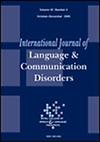JACDI: WS-SF: A Short-Form Version of the Saudi Arabic Communicative Development Inventory
Abstract
Purpose
This study addresses the lack of a short Communicative Development Inventory (CDI) form tailored to Saudi Arabic, specifically designed based on local norms, for assessing early communicative skills in toddlers. The JISH Arabic CDI: Words and Sentences Short-Form (JACDI: WS-SF) is introduced to meet this need. This tool is particularly useful in contexts of low parental literacy and is designed to offer a culturally relevant and efficient assessment of early language development in Saudi Arabic-speaking children.
Method
The JACDI: WS-SF was developed using a cross-sectional study design. Participants were toddlers aged 16 to 36 months and their parents, who provided data on language development through this newly developed tool.
Results
Preliminary findings indicate that the JACDI: WS-SF effectively captures essential aspects of early communicative development, aligning with local linguistic and cultural norms. The tool proves to be accessible to parents with varying literacy levels and sensitive to the linguistic context of Saudi Arabic. Notably, the study highlighted a significant association between children's ability to combine words and their vocabulary size, emphasising the need for considering language complexity in early interventions. Gender differences in vocabulary size were also noted, calling for equitable support in language assessment and intervention.
Conclusions
The JACDI: WS-SF effectively fills a significant gap in developmental assessment tools in the region, confirming its efficacy in initial testing. The outcomes support the tool's utility and cultural relevance, enhancing its potential to expedite language disorder diagnoses, facilitate rigorous and comparable early language development studies, and broaden accessibility to language assessments. These results underscore the importance of the tool in both research and clinical practice, especially for advancing early intervention strategies.
WHAT THIS PAPER ADDS
- Previous studies have established the utility of MacArthur-Bates Communicative Development Inventories (CDIs) for assessing early communicative skills in infants and toddlers, with over 100 adaptations in various languages and dialects globally. However, the existing Saudi Arabic version is lengthy, exceeding the length of most long-form CDIs, and includes outdated items. This highlights the need for updated, culturally appropriate tools that accurately reflect current language and cultural experiences.
- This study introduces the JISH Arabic CDI: Words and Sentences Short-Form (JACDI: WS-SF), a culturally and linguistically updated short-form inventory tailored for Saudi Arabic-speaking children. This new tool is designed to be accessible to parents with varying literacy levels and provides a valid and efficient method for assessing early language development. It addresses the need for updated vocabulary reflecting modern Saudi Arabic-speaking children's environments and supports rapid, reliable developmental assessments.
- The JACDI: WS-SF fills a critical void in the assessment toolkit for clinicians working with Saudi Arabic-speaking infants and toddlers. By providing a culturally relevant and efficient means of evaluating early language development, this tool enables more accurate and timely diagnoses of language disorders, ultimately enhancing clinical assessment practices. Its streamlined format is particularly advantageous for use in busy clinical settings and benefits parents with lower literacy levels. By facilitating accurate and timely interventions, the JACDI: WS-SF supports improved developmental outcomes for children across Saudi Arabia.


 求助内容:
求助内容: 应助结果提醒方式:
应助结果提醒方式:


